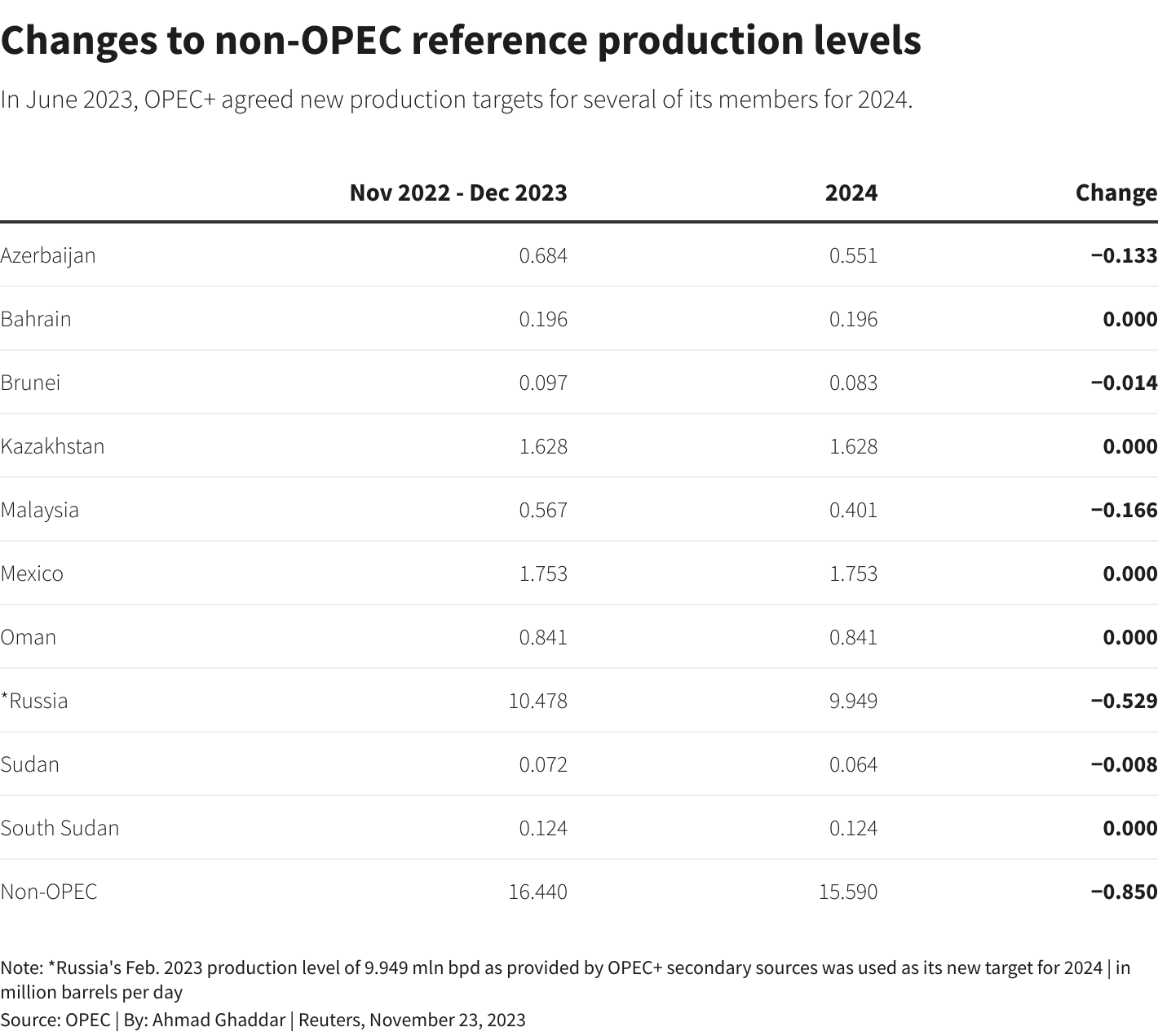Istanbul Talks? Lula's Proposal For Putin And Zelenskyy Negotiations

Table of Contents
The Core Elements of Lula's Peace Plan
Lula's peace proposal for Ukraine outlines a framework for negotiations aimed at achieving a ceasefire and a long-term resolution. It is a multifaceted plan with several key components:
Proposed Negotiation Framework
Lula's framework envisions a phased approach to negotiations, potentially facilitated by a neutral third-party mediator. The plan suggests a series of discussions focused on key issues including:
- Phased Troop Withdrawal: A gradual withdrawal of Russian troops from Ukrainian territory, potentially linked to other concessions.
- Security Guarantees for Ukraine: International commitments to ensure Ukraine's security and territorial integrity post-conflict. This might involve NATO involvement, albeit indirectly, through security pacts with other nations.
- International Monitoring of Agreements: Establishing an international mechanism to monitor and verify the implementation of any agreements reached.
- Territorial Disputes: Addressing territorial disputes through negotiations and potentially international arbitration. This is arguably the most challenging element, given Russia's annexation of Crimea and control over parts of eastern Ukraine.
- War Crimes and Accountability: Establishing mechanisms for accountability for war crimes and other atrocities committed during the conflict.
Istanbul as a Neutral Venue
The choice of Istanbul as the potential negotiation site is significant. Istanbul's historical role as a crossroads of civilizations and its relatively neutral stance compared to many other potential locations make it a seemingly suitable choice for delicate negotiations.
- Advantages: Istanbul offers historical precedent as a site for important international negotiations; it is geographically accessible for both Russia and Ukraine; and it possesses a considerable amount of neutral international presence.
- Disadvantages: Potential biases could still emerge, given Turkey's complex relationship with both Russia and Ukraine; logistical challenges in accommodating large delegations and ensuring security may arise; and there could be a degree of risk in holding such sensitive talks in an urban area that might be susceptible to attacks.
Potential for International Support
Lula's peace plan has garnered mixed reactions from the international community. While some nations and organizations have expressed cautious optimism, others remain skeptical.
- Supporters: Several South American nations and some non-aligned countries have expressed support for Lula's initiative, seeing it as a potential path to de-escalation. The emphasis on neutral mediation is a key element of its appeal.
- Critics: The United States, NATO members, and Ukraine itself have expressed reservations. Critics argue that Lula's plan might not adequately address Ukraine's legitimate security concerns or hold Russia sufficiently accountable for its aggression. The lack of preconditions for Russia's participation is a significant point of contention.
Challenges and Obstacles to Successful Negotiations
Despite its aspirations, Lula's peace proposal faces significant hurdles:
Russia's Stance
Putin's response to Lula's initiative remains unclear, and it's critical to analyze whether the proposal satisfies Russia's key objectives.
- Potential Sticking Points: Russia's demands may include recognition of its territorial gains in Ukraine, an end to Western military aid to Ukraine, and a significant lessening of NATO's influence in the region. These demands are largely incompatible with Ukraine's position and the stance of the West.
Ukraine's Position
Zelenskyy's government has expressed skepticism, emphasizing its non-negotiable demands.
- Ukraine's Red Lines: These include the complete withdrawal of Russian troops from all internationally recognized Ukrainian territory, including Crimea, accountability for war crimes, and appropriate security guarantees. These key aspects are likely to clash with Russia's positions.
The Role of Western Allies
The support (or lack thereof) of the US, NATO, and the EU will significantly influence the outcome of any negotiations.
- Western Concerns: Western allies are likely to be concerned about the potential for a negotiated settlement that leaves Ukraine vulnerable to future Russian aggression or fails to adequately address the issue of accountability for Russia's actions.
Alternative Approaches and Comparisons
Lula's proposal is not the first attempt at mediating the conflict.
Comparing Lula's Proposal to Previous Peace Initiatives
- Similarities and Differences: While previous initiatives, such as those led by the UN, have focused on diplomacy and ceasefire negotiations, Lula's proposal distinguishes itself by its proactive suggestion of a specific location and a potential framework for phased withdrawal. This level of specificity, however, also increases the risk of the plan's failure if one party disagrees with the key elements.
Potential Alternatives to the Istanbul Talks
If Lula's proposal proves unviable, alternative frameworks might need to be explored.
- Alternative Locations and Processes: Other potential locations for future talks could include neutral countries in Europe or elsewhere. Alternative processes might involve smaller, more focused working groups addressing specific aspects of the conflict before a broader peace conference.
Conclusion
Lula's proposal for "Istanbul Talks" offers a potentially valuable framework for peace negotiations between Russia and Ukraine. However, the plan faces significant challenges, particularly concerning the differing positions of Russia and Ukraine and the potential influence of Western allies. The success of this initiative hinges on finding common ground that respects both countries' legitimate security concerns while holding Russia accountable for its aggression. Continued discussion and analysis of initiatives like Lula's Proposal and the potential for the Istanbul Talks are crucial for finding a sustainable peace in Ukraine. Stay informed about the evolving dynamics of this critical conflict and engage in the ongoing dialogue to promote a peaceful resolution. Learn more about the latest developments regarding Lula's Proposal and the potential for the Istanbul Talks to bring peace to Ukraine.

Featured Posts
-
 Online Shopping For Nike Air Jordan 9 Retro Cool Grey A Buyers Guide
May 29, 2025
Online Shopping For Nike Air Jordan 9 Retro Cool Grey A Buyers Guide
May 29, 2025 -
 U S Investment In Canada A Call For Diversification
May 29, 2025
U S Investment In Canada A Call For Diversification
May 29, 2025 -
 Opec To Review Oil Production Quotas Julys Impact On Markets
May 29, 2025
Opec To Review Oil Production Quotas Julys Impact On Markets
May 29, 2025 -
 Formula 1 Driver Marini Hospitalized Following Testing Accident
May 29, 2025
Formula 1 Driver Marini Hospitalized Following Testing Accident
May 29, 2025 -
 Tyler Perrys Bet Dominance Eight Shows Zero Cancellations In Six Years
May 29, 2025
Tyler Perrys Bet Dominance Eight Shows Zero Cancellations In Six Years
May 29, 2025
Latest Posts
-
 Elon Musks Daughters New Career A Closer Look
May 30, 2025
Elon Musks Daughters New Career A Closer Look
May 30, 2025 -
 From Silicon Valley To Runway Vivian Musks Journey
May 30, 2025
From Silicon Valley To Runway Vivian Musks Journey
May 30, 2025 -
 Analysis Of Vivian Jenna Wilsons Modeling Debut And Family Life
May 30, 2025
Analysis Of Vivian Jenna Wilsons Modeling Debut And Family Life
May 30, 2025 -
 A Public Feud Bill Gates Serious Allegations Against Elon Musk And The Response
May 30, 2025
A Public Feud Bill Gates Serious Allegations Against Elon Musk And The Response
May 30, 2025 -
 The Musk Gates Dispute Accusations Of Negligence And Child Mortality
May 30, 2025
The Musk Gates Dispute Accusations Of Negligence And Child Mortality
May 30, 2025
